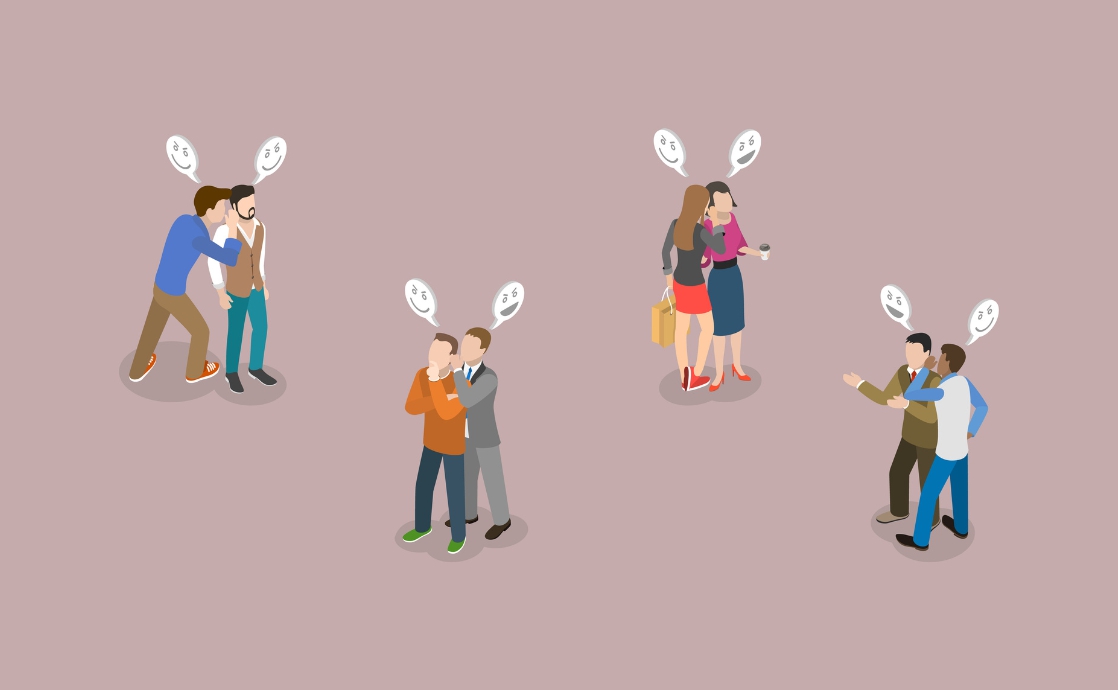The views expressed in our content reflect individual perspectives and do not represent the authoritative views of the Baha'i Faith.
Have you ever had a terrible boss or colleague, one who had obviously forgotten they were no longer in middle school?
Workplace bullying sadly happens on a different level than in middle school—and it can feel even worse. As adults, we should have matured and learned about that thing called “communication” rather than that thing called “passive-aggressiveness.”
We spend most of our adult lives at the workplace, so a bullying issue with a colleague or boss that can’t be resolved with mature direct communication usually results in a very stressful situation. It can cause mental anguish that leads to health problems such as high blood pressure, sleep disturbances, anxiety, and much more. It can also be harder to simply walk away from if you are the sole breadwinner for your family, or even when jobs are hard to come by.
I’ve had clients, friends and family members voice many complaints about this subject. One client had such a mean and horrible boss that after doing her due diligence and trying to resolve the matter through the appropriate channels, nothing changed—and her blood pressure rose so high she had to take a leave of absence. What do you think this kind of stress will eventually do to her body if not resolved?
The Baha’i teachings use a term called “backbiting” that aptly describes this form of harmful, passive-aggressive behavior. Webster’s defines it this way: “to slander someone absent.” Make no mistake about it—ruining someone’s reputation by backbiting is bullying. The victim of this may not know what exactly has been said, but they can feel its effects. The spirit or intuition always knows. This type of behavior actually starts with adults, and then sends a very bad message to friends, family and yes, even their own children:
If any soul speak ill of an absent one, the only result will clearly be this: he will dampen the zeal of the friends and tend to make them indifferent. For backbiting is divisive, it is the leading cause among the friends of a disposition to withdraw. If any individual should speak ill of one who is absent, it is incumbent on his hearers, in a spiritual and friendly manner, to stop him, and say in effect: would this detraction serve any useful purpose? …No, never! On the contrary, it would make the dust to settle so thickly on the heart that the ears would hear no more, and the eyes would no longer behold the light of truth. – Abdu’l-Baha, Selections from the Writings of Abdu’l-Baha, pp. 230-231.
The long-lasting effects of backbiting and bullying, being rude, not smiling, talking trash, gossiping, being unkind, mean or moody with others at the workplace can reach far and wide. When those behaviors escalate, people do the worst things to each other, including throwing their colleague under the bus with the boss, stealing clients, lying, maligning motives, and trying to make people look bad in front of others to satisfy a deeper insecurity and ugliness.
If you feel the need to backbite and talk negatively about others to make yourself feel better about yourself, there is something wrong inside you, not with the other person. Any time you catch yourself backbiting, you should examine your own motives, and stop the behavior.

I personally suffered from childhood bullying at a young age—eleven—simply because I was the new girl in school, and a popular boy liked me. Who really cares about boys at that age anyway? I had to talk my way out of a fight, and then toughen up at an age when all I wanted to do is play with friends and be carefree.
More recently, as an adult, I had to deal with a more passive-aggressive version of bullying from a colleague. This came to me as a shock, because I expected adults to be more mature and well, adult. This person behaved terribly toward me, for no apparent reason at all. Maybe his insecurities were eating him up from the inside out, and he felt the need to direct it all at me—I don’t know. While I tried my best to be nice to this person and ignore his very moody and terrible behavior, in the end it proved impossible. When it became clear nothing would be done about it, I had to end our business relationship.
I know that having my own business allows this kind of freedom, and I realize that it can be harder for a person who works for someone else to do the same. However, every person should stand up for themselves when they’re treated poorly, and we should do that for each other, too. Why is it so hard for some people to stand up for what’s right, regardless of the outcome? It might be uncomfortable in the short term but, in the long term it can become the healthiest and most rewarding feeling, because you actively sought justice. It also creates a healthy effect in the community. Bullying behavior should not be tolerated, ignored or rewarded.
In one of my University courses on health years ago I heard a shocking statistic: that 80% of Americans have been or are on an anti-anxiety or depression pharmaceutical. That’s a staggering number! There are a myriad of causes for this, including legitimate mental illness, but I would suggest that much anxiety and depression come from backbiting and bullying. Have people forgotten how to simply be kind to each other? Are they are too self-absorbed in their own misery? Or maybe, they don’t realize how we are all truly connected to each other? It isn’t just your family or friends who connect you to others, it is everyone.
You May Also Like
Comments

















“Be not the slave of your moods, but their master. But if you are so angry, so depressed and so sore that your spirit cannot find deliverance and peace even in prayer, then quickly go and give some pleasure to someone lowly or sorrowful, or to a guilty or innocent sufferer! Sacrifice yourself, your talent, your time, your rest to another, to one who has to bear a heavier load than you -- and your unhappy mood will dissolve into a blessed, contented submission to God.”
― Abdul'-Baha